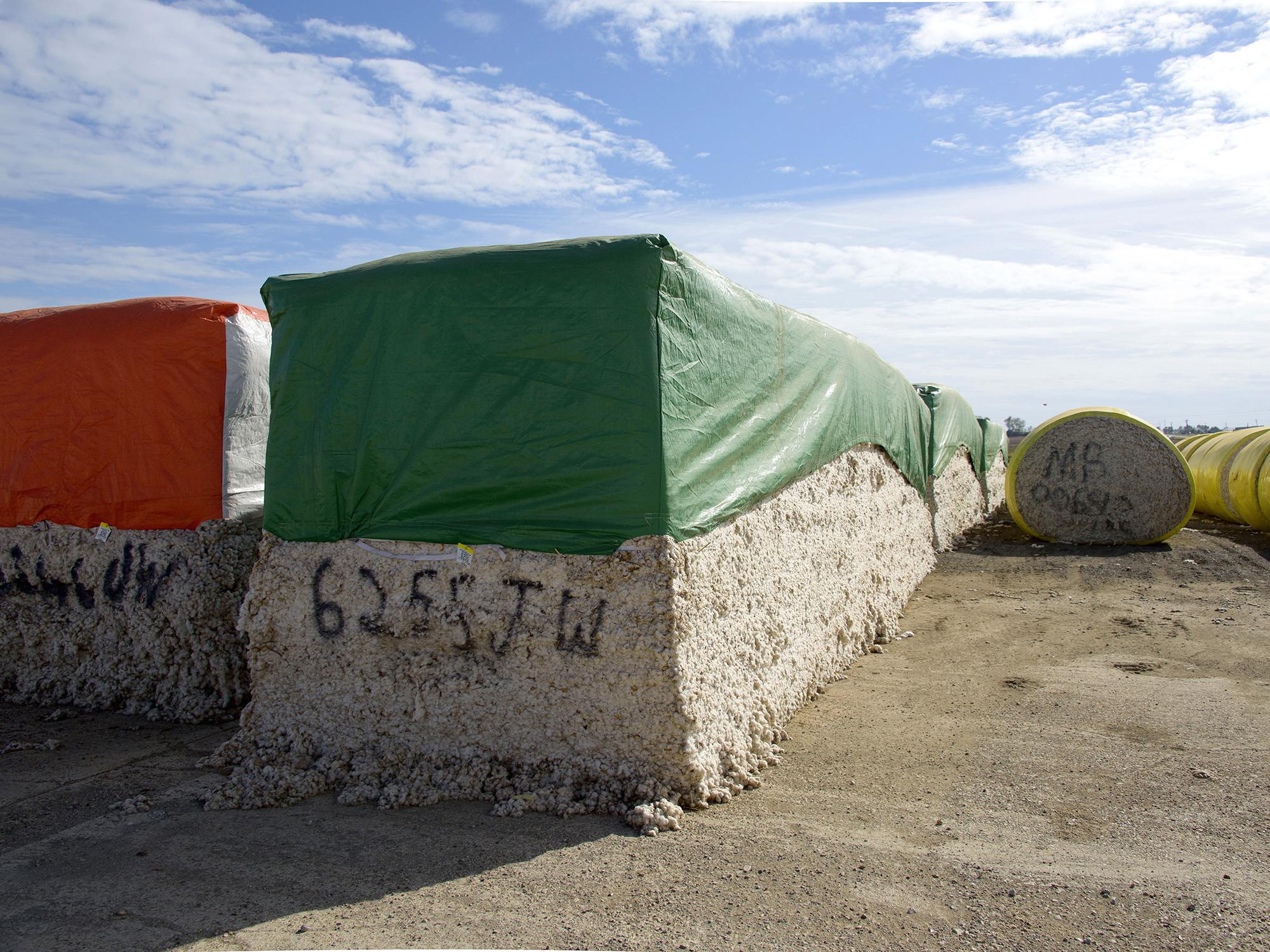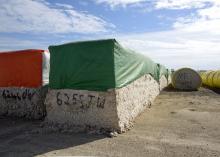Information Possibly Outdated
The information presented on this page was originally released on December 19, 2017. It may not be outdated, but please search our site for more current information. If you plan to quote or reference this information in a publication, please check with the Extension specialist or author before proceeding.
2017 saw rebounds in cotton, soybean values
STARKVILLE, Miss. -- The 2017 production value of Mississippi’s four largest row crops is forecasted to outperform the previous year by more than 7 percent.
Brian Williams, agricultural economist with the Mississippi State University Extension Service, predicted the combined value of soybeans, cotton, corn and rice will be nearly $2.1 billion this year. The total projected value for all agronomic crops is $2.5 billion, which would be a 6.4 percent increase over the $2.4 billion value reached in 2016.
“Overall it was a very strong year for most of our crops production-wise,” Williams said. “Yields for corn and soybeans were at record levels, while rice and cotton yields were also respectable.”
Cotton…
Strong seasons for cotton and soybeans buoyed the projected total. At more than $473 million, cotton is forecasted to have a 37 percent higher value this year than in 2016, when the value was just short of $351 million. If the projection holds, it would mark the best season for cotton in the state since 2011.
At 70 cents per pound, the current nationwide average for cotton prices is up more than 2 cents over a year ago.
The U.S. Department of Agriculture forecasted the state’s cotton production at 1.5 million bales, with yield expected to average 1,083 pounds per acre. Harvested acreage is estimated at 625,000 acres, compared with 430,000 acres of cotton last year.
Darrin Dodds, MSU Extension cotton specialist, said yields could have been better without insect pressure. He said he expects next year’s acreage to be about the same as 2017.
“Cotton growers had a great year, but they had to spend a lot of money to do it,” Dodds said. “Many producers paid for crop varieties with pest-resistant traits and still had to spend more money to spray for pests and control worms and thrips. On the whole, we did very well, but the yield would have been a lot better with a warmer fall and less insect pressure.”
Soybeans…
Soybeans are projected to have their best showing since 2014. The forecasted $1.1 billion value is a 15.5 percent increase over the crop’s value in 2016. The statewide average is projected to be 52 bushels per acre compared with 48 in 2016.
“This year’s success was mainly a function of good early planting conditions and favorable weather patterns,” said MSU Extension soybean specialist Trent Irby. “We got a lot of soybeans planted in April. We also had a lot of beneficial rainfall in many areas and were helped by lower-than-normal temperatures. Other than a brief stretch in July, we didn’t have a lot of extreme heat.”
Soybean production in 2017 is forecasted at 113 million bushels, up 16 percent from 2016. An increase of 150,000 harvested acres is projected, which would add up to 2.2 million acres. Prices averaged $9.87 a bushel, compared with $9.95 per bushel in 2016.
Corn…
The forecast for row crops this year is optimistic despite down years for corn and rice.
Corn production fell from $448 million in 2016 to an estimated $337 million this year -- a drop of nearly 25 percent. This would be the lowest total value for corn in the state since 2009. Prices were also down to $3.59 per bushel, compared with $3.75 last year.
MSU Extension corn specialist Erick Larson said price declines caused growers who would have normally planted corn to opt for soybeans instead, but yields should break records for those who did decide to grow corn. The state has averaged more than 155 bushels per acre of corn over the last 10 years, but this year’s average is estimated to break 188.
“We had a better planting season than what we have experienced in the last four years. This helped the corn crop get off to a strong start,” Larson said. “We also had moderate temperatures and ample rainfall during the critical grain-filling stages in June and early July, which are key to productivity. Ample rainfall kept some growers from having to irrigate at all, compared to some years where they have to irrigate five or six times, so input costs were lower than normal.”
Corn production is forecasted at 94 million bushels, which is down 21 percent from last year. Producers are expected to harvest 500,000 acres. In 2016, they harvested 720,000 acres.
Rice…
Mississippi rice is expected to reach just above $106 million in value this year. This value would be a 20.5 percent dip from nearly $134 million in 2016. If the current forecast holds, this year’s rice value would be less than half what it was in 2010, when it was almost $218 million.
This is the first year on record that rice values are projected to be outperformed by a crop other than the state’s big four. Sweet potatoes have a projected value of more than $118 million this year.
“At 120,000 acres, this is the lowest rice acreage we’ve had since we released allotments in the mid-1970s,” said Bobby Golden, MSU Extension rice specialist. “Going into the year, rice price projections relative to soybeans had a lot of influence on acreage planted. What we did plant, we got in the ground faster than we ever have.”
Lower rice acreage was also a trend outside of Mississippi, tightening supply and driving prices up from $9.60 per hundredweight last year to $12.31 on average in 2017.
“Prices weren’t nearly that high when the planting decisions were made last winter,” Williams said. “They really didn’t make their run-up until around the first part of May and then continued to climb all the way through September. By that point, a lot of the rice was already in the ground.”
Golden said there is enough optimism going into 2018 about rice prices to forecast an increase in acreage next year, perhaps as many as 140,000 total acres.
“We’re expecting to see prices improve during the 2018 crop year,” he said. “Since 2010, we have a pattern of a high acreage year followed by low one. We then jump back up but never at the level from two years prior.”
Others…
One other row crop also saw a record low production value: grain sorghum. At $1.3 million, sorghum values are expected to be the lowest since 1965. Just two years ago, the sorghum value in Mississippi was more than $43 million.
Wheat and peanut values are expected to improve over 2016’s. Wheat values are forecasted to exceed $12.6 million this year, a 16 percent increase from last year. The state’s peanut crop is predicted to eclipse $30 million for the first time in five years.












